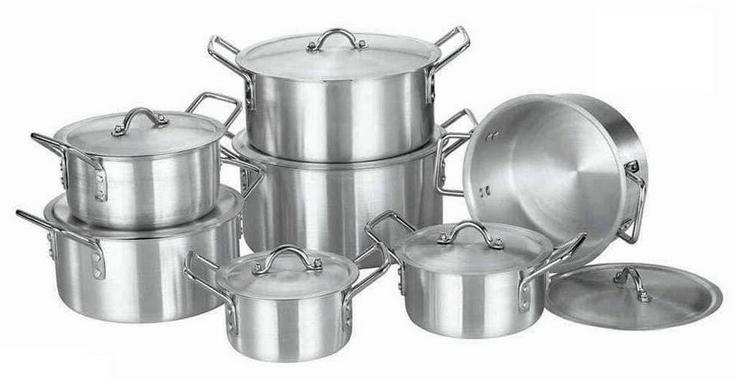Can You Get Aluminum Poisoning From Soda Cans? Should You Be Worried?

If you’re a fan of soda, you’re probably used to cracking open a cold can and enjoying your favorite fizzy drink. But have you ever stopped to wonder about the safety of drinking soda from aluminum cans?
Many people are concerned about the potential risks of aluminum poisoning from soda cans, and for good reason. In this article, we’ll take a closer look at the issue and explore what you need to know to stay safe while enjoying your favorite beverages.
Why Aluminum is Used for Soda Cans
Aluminum is a popular choice for soda cans due to its numerous desirable properties. First and foremost, aluminum is lightweight, making it easy and cost-effective to transport. Additionally, aluminum is an excellent conductor of heat, which means that it cools quickly and maintains the temperature of the liquid inside the can. This is especially important for beverages like soda that are typically consumed cold.
Another advantage of aluminum is its durability. Aluminum cans are strong and resistant to damage, which helps to protect the product inside. This is particularly important for carbonated beverages like soda, which can be damaged by exposure to air or moisture. Aluminum cans also offer excellent protection against light and UV radiation, which can cause the contents of the can to deteriorate over time.
The use of aluminum for soda cans also has environmental benefits. Aluminum is a highly recyclable material, and recycling aluminum cans is much more energy-efficient than producing new cans from raw materials. In fact, recycling a single aluminum can saves enough energy to power a television for three hours.
Furthermore, aluminum is a sustainable material. It is abundant in nature and can be easily extracted from bauxite, a mineral that is found in large quantities around the world. Aluminum production also has a relatively low carbon footprint, making it a popular choice for companies that are looking to reduce their environmental impact.
Can You Get Aluminum Poisoning From Soda Cans?
While aluminum is used in the production of soda cans, it is highly unlikely that consuming soda from an aluminum can will cause aluminum poisoning. This is because the amount of aluminum that leaches into the soda from the can is very small.
In fact, the amount of aluminum that is released from a soda can is significantly lower than the amount of aluminum that is naturally present in many foods and beverages. For example, a single slice of bread can contain up to 12 milligrams of aluminum, while a can of soda contains less than 0.01 milligrams.
Furthermore, the Food and Drug Administration (FDA) has set strict limits on the amount of aluminum that is allowed in food and beverages. These limits ensure that the amount of aluminum that is present in soda is well below the level that could cause harm.
Factors That Affect Aluminum Leaching: pH Levels, Temperature, and Storage Conditions
The risk of aluminum leaching into beverages from soda cans depends on several factors, including the acidity of the beverage, the temperature at which it is stored, and the length of time it remains in contact with the can. Here are some of the key factors that can affect aluminum leaching:
- pH levels: Highly acidic beverages, such as soda and fruit juices, can cause aluminum to leach more quickly from cans. This is because acid can dissolve the protective oxide layer that forms on the surface of the aluminum can, allowing the metal to come into contact with the beverage.
- Temperature: Higher temperatures can also cause aluminum to leach more quickly from cans. This is because heat can accelerate chemical reactions, causing the metal to break down more quickly and release into the beverage.
- Storage conditions: The length of time that a beverage remains in contact with a can can also affect aluminum leaching. Beverages that are stored for longer periods of time may have higher levels of aluminum due to prolonged contact with the can.
The Effects of Aluminum Poisoning on Your Body
Some studies have suggested that prolonged exposure to high levels of aluminum may be linked to health problems. The risk of aluminum poisoning from soda cans depends on several factors, including the acidity of the beverage, the temperature at which it is stored, and the length of time it remains in contact with the can.
Short-term exposure to high levels of aluminum may cause symptoms such as headaches, nausea, vomiting, and abdominal pain. Long-term exposure to high levels of aluminum may result in more serious health problems, including bone disorders, kidney damage, and neurological problems. In extreme cases, aluminum poisoning can be fatal.
Other Sources of Aluminum Exposure
While consuming soda from an aluminum can is unlikely to cause aluminum poisoning, there are other sources of aluminum exposure that can be a cause for concern. These include:
1. Cooking Utensils
Aluminum is commonly used in the production of cookware and other kitchen utensils. While cooking with aluminum utensils is generally considered safe, acidic foods (such as tomato sauce or vinegar) can cause small amounts of aluminum to leach into the food. To minimize your exposure to aluminum from cookware, consider using non-aluminum alternatives, such as stainless steel or cast iron.
2. Antiperspirants
Many antiperspirants contain aluminum compounds, which are used to help reduce sweating. While the amount of aluminum that is absorbed through the skin from antiperspirants is relatively small, some people may be concerned about the long-term effects of exposure. If you are concerned about aluminum exposure from antiperspirants, consider using a natural alternative that does not contain aluminum.
3. Medications
Some medications, such as antacids and buffered aspirin, contain aluminum. While the amount of aluminum in these medications is generally considered safe, people who take these medications frequently or for long periods of time may be at risk for aluminum toxicity.
Alternatives to Aluminum Cans: Exploring Other Beverage Packaging Options
If you’re concerned about the potential risks of aluminum poisoning from soda cans, there are several alternative beverage packaging options to consider. Glass bottles, for example, are a popular alternative to aluminum cans, as they are non-toxic, reusable, and recyclable. Plastic bottles are another option, although they are often criticized for their environmental impact.
In recent years, several companies have also introduced innovative new beverage packaging options that are designed to be more eco-friendly and sustainable. For example, some companies are now using paper-based packaging materials, which are renewable, biodegradable, and compostable.
Debunking Common Myths About Aluminum Poisoning and Soda Cans: Separating Fact from Fiction
There are many myths and misconceptions surrounding the issue of aluminum poisoning from soda cans. Here are some common myths and the facts behind them:
- Myth: Aluminum can cause cancer. While some studies have suggested a possible link between aluminum exposure and cancer, the evidence is not conclusive. The FDA has not found any evidence to suggest that aluminum in food packaging materials causes cancer.
- Myth: Drinking soda from aluminum cans can lead to Alzheimer’s disease. While some studies have suggested a possible link between aluminum exposure and Alzheimer’s disease, the evidence is not conclusive. The Alzheimer’s Association states that there is no definitive evidence to support the theory that aluminum in food packaging materials causes Alzheimer’s disease.
- Myth: Aluminum leaching from soda cans is a major health concern. While aluminum leaching from soda cans can occur, it is generally not considered a major health concern. The FDA has established safe levels of aluminum intake, and most people are unlikely to consume enough aluminum from soda cans to cause harm.






